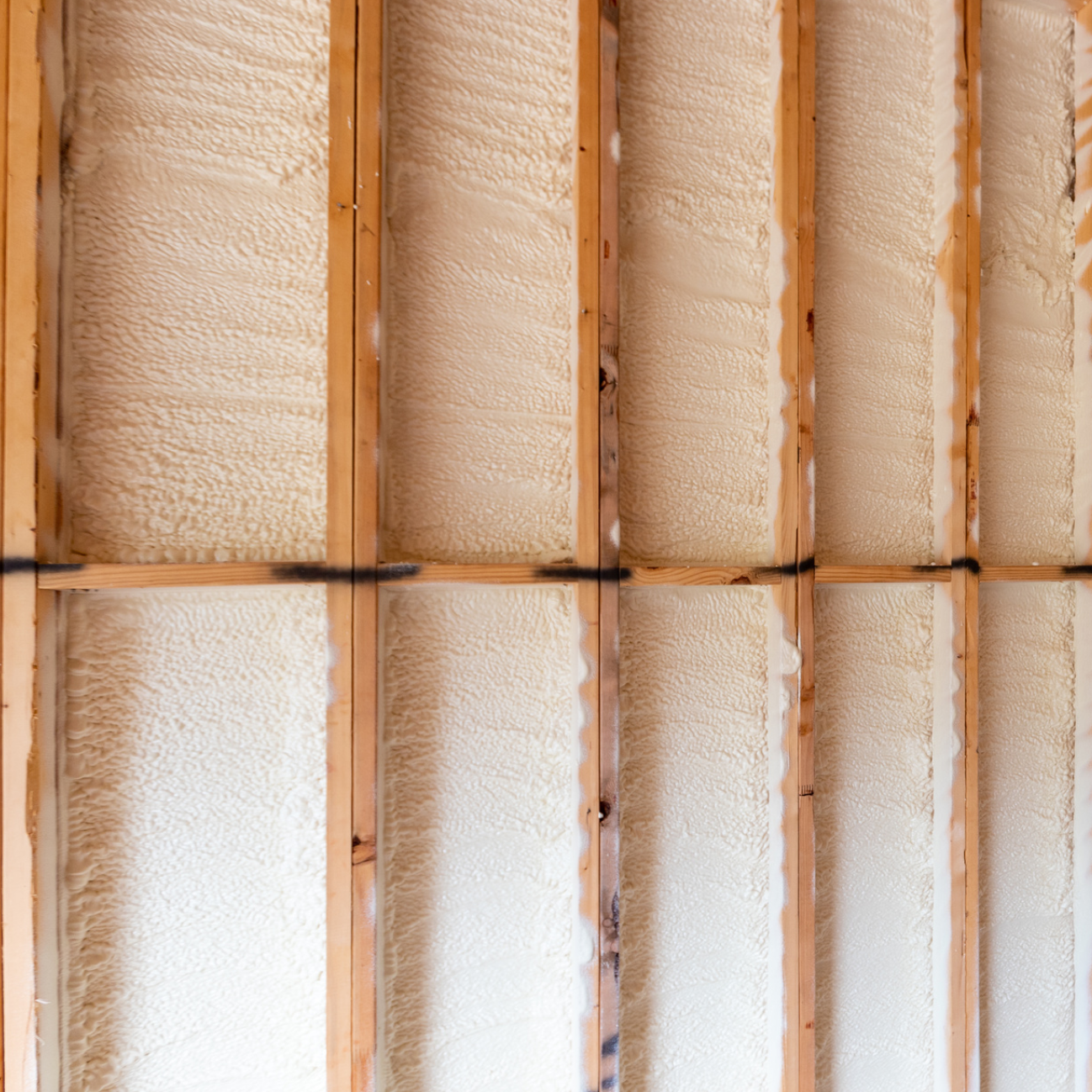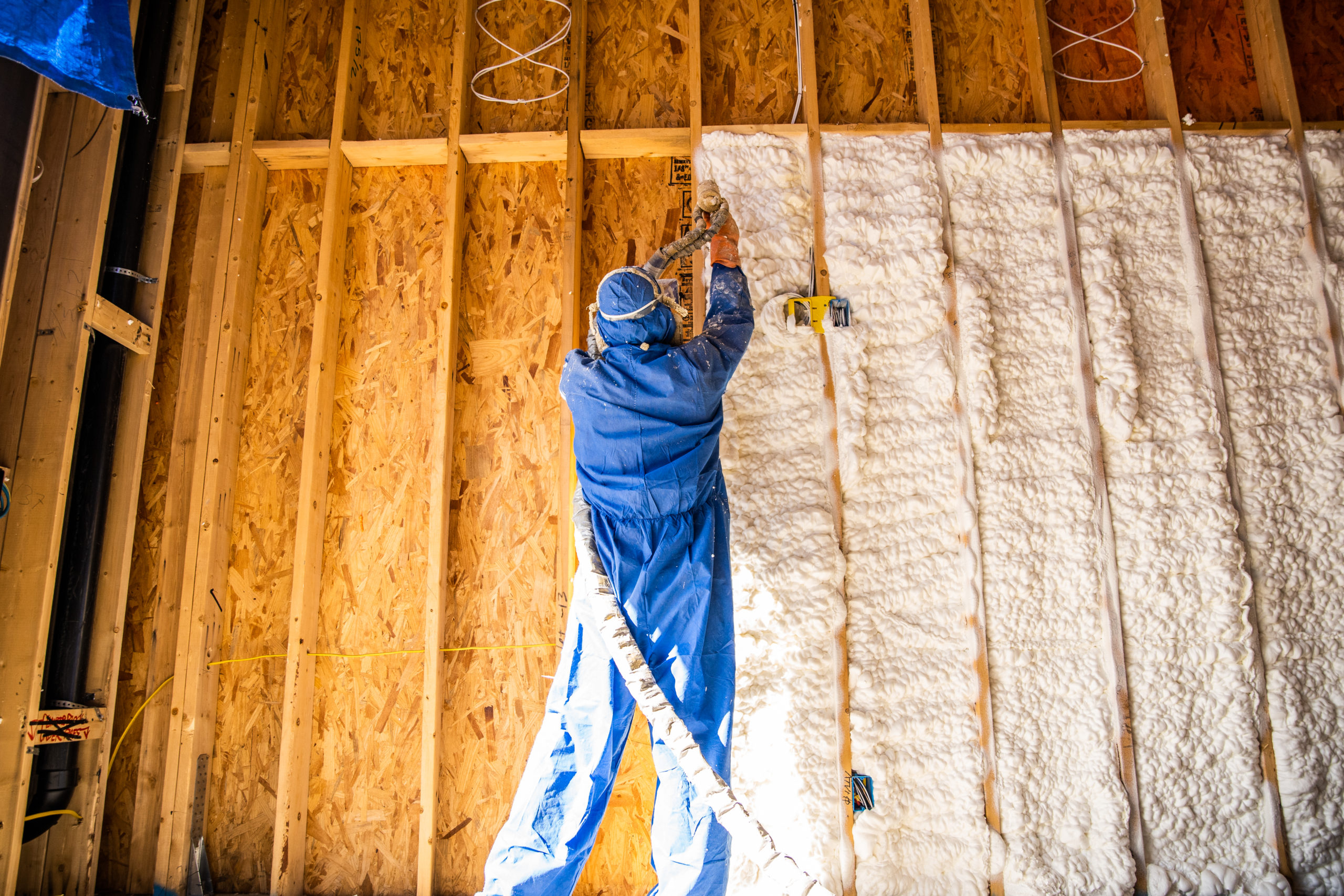Spray Foam: The Ultimate Remedy for Air Sealing and Insulation
Spray foam insulation has become a leading remedy for effective air sealing and thermal insulation, using an one-of-a-kind combination of properties that set it besides traditional techniques. Its capability to increase and fill gaps makes it especially reliable in protecting against air leakage, which can substantially influence energy efficiency. Nevertheless, recognizing the full scope of its benefits, installation processes, and contrasts with various other insulation kinds is essential for making notified choices. As we discover these aspects, the ramifications for both brand-new constructions and retrofits come to be increasingly significant. What aspects should affect your selection?
What Is Spray Foam?
Spray foam is a versatile insulation product that integrates the principles of air securing and thermal resistance to improve energy efficiency in structures. Composed primarily of polyurethane or various other similar substances, spray foam is applied as a liquid that broadens upon contact with surface areas, producing a strong, constant layer of insulation. This unique residential or commercial property allows it to fill up gaps, splits, and spaces that typical insulation products might ignore, providing a premium air seal.
There are two major sorts of spray foam: open-cell and closed-cell. Open-cell spray foam is lighter and more versatile, offering exceptional sound absorption and a reduced R-value per inch - Spray Foam. In contrast, closed-cell spray foam is denser, supplying a greater R-value, wetness resistance, and included structural honesty to building elements
The application procedure usually entails specialized tools, ensuring a seamless application that follows various substratums, including concrete, timber, and metal. This adaptability makes spray foam appropriate for both brand-new constructions and retrofitting existing structures. Its capacity to create a closed obstacle significantly adds to lowering energy usage and boosting indoor air quality, thus making it a recommended selection among house owners and building contractors alike.
Advantages of Spray Foam Insulation
One of the most considerable benefits of spray foam insulation is its remarkable capability to produce a constant air obstacle, which properly decreases power loss. Unlike traditional insulation materials, spray foam expands to fill cracks and spaces, making sure that air leakage is substantially lowered. This characteristic not only improves energy efficiency but additionally results in reduce energy costs with time.
In addition, spray foam insulation gives remarkable thermal resistance, adding to a much more stable indoor setting. Its high R-value per inch enables efficient insulation in confined spaces, making it ideal for attic rooms, wall surfaces, and crawl spaces. The moisture-resistant buildings of spray foam assistance avoid mold and mildew and mildew growth, advertising healthier living problems.
One more crucial advantage of spray foam insulation is its sound-dampening high qualities (Spray Foam). It efficiently lowers noise transmission in between spaces, creating a quieter and a lot more comfortable home setting. The toughness of spray foam also attracts attention, as it does not sag or resolve in time, keeping its performance throughout its life-span
Exactly How Spray Foam Functions
Comprehending just how spray foam insulation works is essential for appreciating its performance in air sealing and thermal resistance. Spray foam insulation contains two key components: isocyanate and polyol material. When these components are combined, they go through a chain reaction that triggers the product to expand swiftly, creating a thick foam that fills splits, gaps, and tooth cavities.
As the foam increases, it follows surfaces, developing an impermeable seal that significantly decreases air seepage. This particular makes spray foam insulation very effective at protecting against drafts and moisture penetration, which can cause power loss and damages in time. In addition, the closed-cell version of spray foam offers exceptional thermal resistance because of its inflexible structure, efficiently decreasing heat transfer.
The distinct buildings of spray foam allow it to conform to irregular surface areas, ensuring thorough insurance coverage and a smooth barrier. Therefore, spray foam insulation not just improves power effectiveness however additionally adds to enhanced interior air top quality by minimizing the accumulation of allergens and contaminants. Ultimately, understanding the technicians behind spray foam emphasizes its function as a remarkable choice for see this here insulation and air sealing in both industrial and domestic applications.
Installment Process Overview

Before installment, the room should be appropriately cleaned and prepped, making sure that surface areas are free from dust, particles, and dampness. Because contaminants can jeopardize bond and general efficiency, this action is critical. As soon as the location is prepared, the application involves mixing the two components of the spray foam, which expands upon get in touch with and fills up spaces successfully.
Educated experts must perform the installation, utilizing specialized equipment to guarantee uniform protection and ideal thickness. Security safety measures, consisting of using safety equipment and making certain correct air flow, are crucial throughout this procedure. After application, the foam commonly cures quickly, developing a strong obstacle that improves power effectiveness.
Contrasting Spray Foam to Standard Insulation
When evaluating insulation options, spray foam insulation stands apart in contrast to conventional products such as fiberglass and cellulose. One of the primary benefits of spray foam is its remarkable air sealing capabilities. Unlike fiberglass and cellulose, which can permit air seepage, spray foam expands upon application, loading voids and crevices to create an impermeable seal. This leads to enhanced power effectiveness, as less warmed or cooled air runs away the home, causing lower energy bills.
In addition, spray foam offers a greater R-value per inch than conventional insulation kinds, offering even more effective thermal resistance in a thinner profile. This particular is especially beneficial in rooms with limited dental caries depth. Spray foam is immune to moisture and mold development, which can be a significant worry with cellulose and fiberglass, specifically in damp settings.
However, spray foam insulation normally carries a higher in advance cost than this page its conventional equivalents. House owners have to weigh this preliminary financial investment versus long-term energy financial savings and efficiency benefits. Ultimately, while both insulation types offer their objective, spray foam arises as an advanced remedy for modern insulation requirements, especially in regards to air securing and thermal performance.

Verdict
In recap, spray foam insulation stands for a very efficient option for attaining optimum air securing and thermal resistance. Its special buildings, consisting of dampness resistance and noise dampening, make it appropriate for various applications in both new constructions and retrofitting tasks (Spray Foam). The preliminary costs might be higher contrasted to standard insulation materials, the lasting advantages, such as significant power cost savings and improved interior air quality, warrant the investment and emphasize its value in modern structure practices.
Spray foam insulation has actually emerged as a leading remedy for reliable air sealing and thermal insulation, offering a special combination of properties that establish it apart from traditional techniques.Spray foam is a versatile insulation product that combines the principles of air securing and thermal resistance to enhance power efficiency in buildings.When reviewing insulation choices, spray foam insulation stands out in contrast to conventional products such as fiberglass and cellulose. Inevitably, while both insulation types offer their purpose, spray foam emerges as an extra advanced service for modern-day insulation needs, especially in terms of air securing and thermal efficiency.
In summary, spray foam insulation stands for a highly effective option for attaining optimal air sealing and thermal resistance.